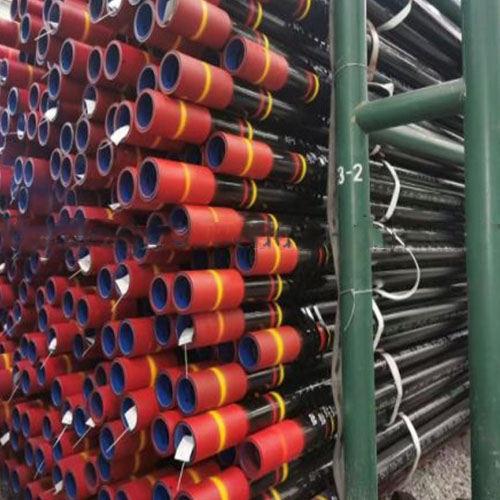Benefits of Using 4mm, 6mm, and 8mm rigid nylon Tubing in industrial Applications
Nylon tubing is a versatile material that is commonly used in various industrial applications. It is known for its durability, flexibility, and resistance to chemicals and abrasion. Nylon tubing comes in different sizes, with 4mm, 6mm, and 8mm being some of the most popular options. In this article, we will explore the benefits of using 4mm, 6mm, and 8mm rigid nylon tubing in industrial applications.
One of the main advantages of using nylon tubing is its strength and durability. Nylon is a tough and resilient material that can withstand high pressure and temperature, making it ideal for use in demanding industrial environments. Whether you are transporting fluids, gases, or other materials, nylon tubing can provide the strength and reliability you need to get the job done.
In addition to its strength, nylon tubing is also known for its flexibility. This flexibility allows for easy installation and routing, even in tight spaces or around obstacles. The ability to bend and flex without kinking or collapsing makes nylon tubing a versatile choice for a wide range of applications. Whether you are working in a confined space or need to navigate around machinery, nylon tubing can provide the flexibility you need to get the job done efficiently.
casing scraper priceAnother benefit of using nylon tubing is its resistance to chemicals and abrasion. Nylon is a non-reactive material that can withstand exposure to a wide range of chemicals, including acids, bases, and solvents. This resistance to chemical corrosion makes nylon tubing an excellent choice for applications where exposure to harsh chemicals is a concern. Additionally, nylon tubing is highly resistant to abrasion, making it a durable choice for applications where wear and tear are common.
Furthermore, nylon tubing is lightweight and easy to handle, making it a convenient choice for industrial applications. Its light weight makes it easy to transport and install, reducing the time and effort required for maintenance and repairs. Additionally, nylon tubing is easy to cut and manipulate, allowing for quick and precise installations. Whether you are working on a large-scale project or a small repair job, nylon tubing can provide the convenience and ease of use you need to get the job done efficiently.
In conclusion, 4mm, 6mm, and 8mm rigid nylon tubing offer a range of benefits for industrial applications. From its strength and durability to its flexibility and resistance to chemicals and abrasion, nylon tubing is a versatile and reliable choice for a wide range of applications. Whether you are transporting fluids, gases, or other materials, nylon tubing can provide the strength, flexibility, and convenience you need to get the job done efficiently. Consider using 4mm, 6mm, and 8mm rigid nylon tubing in your next industrial project to experience the benefits for yourself.
Comparison of flexible Nylon Tubing Sizes: 4mm vs. 6mm vs. 8mm
When it comes to choosing the right size of flexible nylon tubing for your specific application, there are several factors to consider. The most common sizes available on the market are 4mm, 6mm, and 8mm. Each size has its own unique set of advantages and disadvantages, so it’s important to understand the differences between them before making a decision.
One of the main factors to consider when choosing the size of flexible nylon tubing is the flow rate. The larger the diameter of the tubing, the higher the flow rate it can accommodate. This means that if you need to transport a large volume of fluid or gas through the tubing, you may want to opt for a larger size, such as 8mm. On the other hand, if you only need to transport a small volume of fluid, a smaller size like 4mm may be sufficient.
Another important factor to consider is the flexibility of the tubing. Flexible nylon tubing is designed to bend and flex without kinking or collapsing, making it ideal for applications where the tubing needs to be routed around obstacles or through tight spaces. In general, smaller sizes like 4mm tend to be more flexible than larger sizes like 8mm. However, this flexibility comes at the cost of reduced flow rate capacity.
Durability is also a key consideration when choosing the size of flexible nylon tubing. Nylon tubing is known for its strength and resistance to abrasion, making it a popular choice for a wide range of industrial applications. Larger sizes like 8mm are generally more durable than smaller sizes like 4mm, as they are less likely to kink or collapse under pressure. If your application requires tubing that can withstand high levels of wear and tear, a larger size may be the best option.
Cost is another important factor to consider when choosing the size of flexible nylon tubing. In general, larger sizes like 8mm tend to be more expensive than smaller sizes like 4mm. This is due to the fact that larger tubing requires more material to manufacture, resulting in higher production costs. If you are working within a tight budget, you may want to opt for a smaller size to save on costs.
In conclusion, when choosing between 4mm, 6mm, and 8mm flexible nylon tubing, it’s important to consider factors such as flow rate, flexibility, durability, and cost. Each size has its own unique set of advantages and disadvantages, so it’s important to carefully evaluate your specific needs before making a decision. Whether you need to transport a large volume of fluid, navigate tight spaces, withstand high levels of wear and tear, or stay within a budget, there is a size of flexible nylon tubing that is right for you.

